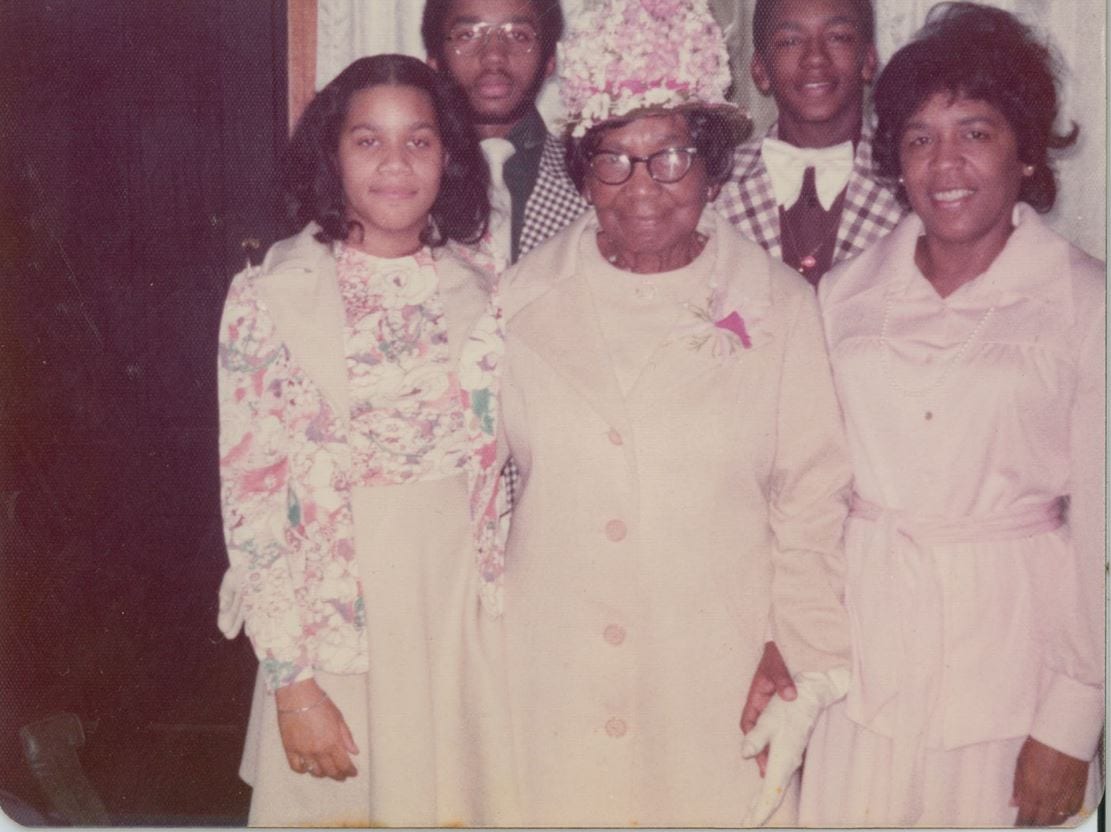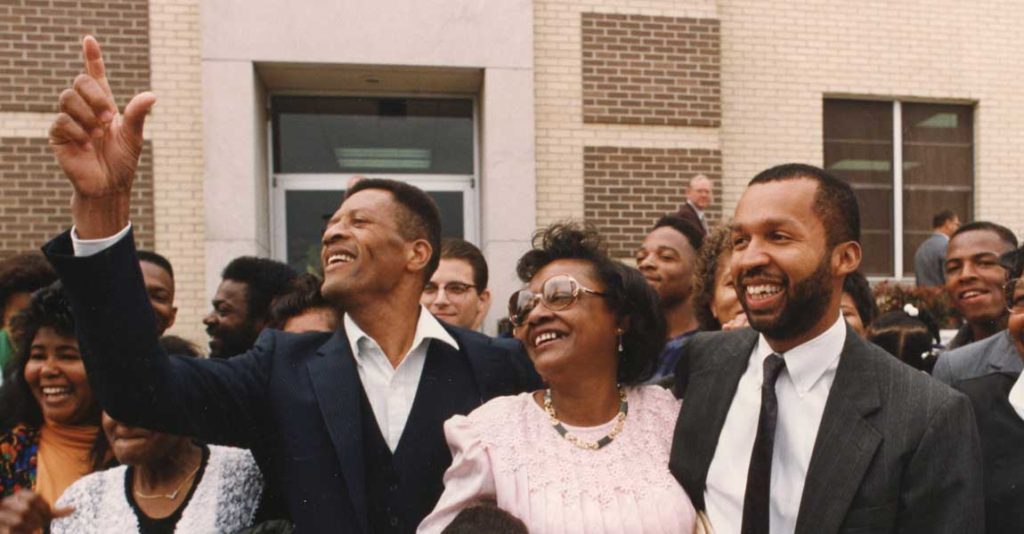Can one individual truly make a difference in the face of systemic injustice? Bryan Stevenson's life and work provide a resounding affirmative, demonstrating the power of relentless advocacy and unwavering commitment to human dignity.
Born on November 14, 1959, in Milton, a small town nestled in southern Delaware, Stevenson's roots were firmly planted in the soil of the American experience. His father, Howard Carlton Stevenson Sr., a native of Milton, instilled in him a sense of place and belonging. His mother, Alice Gertrude (Golden) Stevenson, hailing from Philadelphia, brought a broader perspective, perhaps hinting at the world beyond the confines of their small town. The very date of his birth, November 14, 1959, marks a pivotal moment in history, a time when the fight for civil rights was gaining momentum, shaping the backdrop of Stevenson's formative years.
The circumstances of his birth, in Milton, Delaware, to Alice Gertrude Golden, a 'Dover Air Force Base' employee, and Howard Carlton Stevenson, Sr., a laboratory technician at a 'General Foods' processing factory, offer insight into his upbringing. Stevenson's early years were marked by a blend of familial stability and the realities of a society grappling with racial inequality. He was one of three children born to Alice Stevenson, an office worker at Dover (Delaware) Air Force Base, and Howard Stevenson, Sr., a factory worker. The family was rooted in faith and in music, attending Prospect African Methodist Episcopal Church in Georgetown, where Stevenson played piano and sang in the choir. His sister, Christy Taylor, later became a music teacher, reflecting the family's artistic leanings.
Stevenson's journey through education began within the context of a racially segregated school system. He was among the first generation of African Americans in Delaware to experience the impact of legalized integration in public schools. This experience, though challenging, likely shaped his understanding of the inherent injustices embedded within societal structures.
His father, Howard Carlton Stevenson, Jr., was a laboratory technician at General Foods, and his mother, Alice Gertrude (Golden), was an equal opportunity officer at Dover Air Force Base. His parents were instrumental in shaping his character and instilling a strong sense of justice. Though he encountered racism as he grew up, his mother encouraged him and his siblings to challenge mistreatment, imbuing them with resilience and a proactive approach to injustice.
| Full Name | Bryan Stevenson |
| Date of Birth | November 14, 1959 |
| Place of Birth | Milton, Delaware, U.S. |
| Parents | Alice Gertrude Golden, Howard Carlton Stevenson, Sr. |
| Siblings | Christy Taylor (Sister) |
| Education |
|
| Profession |
|
| Current Role |
|
| Known For |
|
| Notable Achievements |
|
| Link to Reference | Equal Justice Initiative Official Website |
The experiences of his childhood, combined with his inherent sense of justice, propelled him towards a career dedicated to fighting for the rights of the marginalized. The influence of his family, with their focus on faith and artistic expression, likely played a crucial role in shaping his compassionate outlook. This foundation became the cornerstone of his lifes work.
Stevenson's academic achievements and his professional path reflect his commitment to the pursuit of justice. He attended Eastern University, where he laid the groundwork for his future legal studies. His subsequent enrollment at Harvard University provided him with the tools and platform to refine his legal acumen and strategize his approach to systemic issues. It was at Harvard that he began to focus his energies on advocating for those most vulnerable within the justice system.
The legal career of Bryan Stevenson, however, is best understood through the lens of social justice. His work is characterized by an unwavering belief in the inherent dignity of every individual, no matter their background or the crimes they may have committed. This deeply held conviction has driven his relentless fight for the rights of the wrongly convicted and those facing the death penalty.
In the realm of legal practice, Stevenson has stood as a formidable champion for the voiceless. His legal acumen is evident in the cases he has successfully argued before the United States Supreme Court. These victories aren't merely legal wins; they are testaments to his ability to dissect intricate legal complexities and illuminate the injustices hidden within. He has tirelessly advocated for the rights of the incarcerated and has challenged the very foundations of systemic bias in the criminal justice system.
The Equal Justice Initiative (EJI), which Stevenson founded and leads as Executive Director, is the vehicle through which his vision of a more just society takes shape. The EJI is a non-profit organization that provides legal representation to those facing the death penalty, challenges racial bias in the criminal justice system, and works to reform the juvenile justice system. His organization has spearheaded an impressive body of work. EJI's impact extends beyond the courtroom, into the realm of public education. It provides legal assistance to wrongly condemned prisoners and aims to challenge the fundamental injustices that exist within the criminal justice system.
Beyond legal advocacy, Stevenson has also made a significant contribution to the broader understanding of America's history of racial injustice. The Legacy Museum: From Enslavement to Mass Incarceration and the National Memorial for Peace and Justice, both located in Montgomery, Alabama, are powerful testaments to the legacy of slavery, the injustices of racial segregation, and the enduring impact of mass incarceration on African Americans. These projects demonstrate Stevensons commitment to not only rectifying the present but also confronting the past to forge a more equitable future.
Stevenson's influence extends to the world of letters through his memoir, "Just Mercy: A Story of Justice and Redemption." The book recounts Stevenson's experiences as a young lawyer, the cases he fought, and the systemic issues he encountered. The book was a critical and commercial success, offering readers a deeply moving and informative look at the realities of the American justice system. It was later adapted into a film, which further amplified his message and reached a broader audience.
The essence of Stevenson's work revolves around the core belief that everyone is worthy of justice and mercy. He argues, quite persuasively, that we must all acknowledge the mistakes we've made in the past. Stevenson highlights the humanity in every individual, regardless of their circumstances. He urges us to consider the circumstances that lead to criminal behavior, the biases that permeate the legal system, and the importance of redemption.
The concept of mercy, in Stevenson's view, is not a weakness but a strength. It is the willingness to recognize the imperfections of human beings, including those who have committed crimes. In a system often characterized by retribution and punishment, his emphasis on mercy and redemption stands as a call for a more compassionate and equitable approach to justice.
Stevenson's legacy is one of profound impact and ongoing inspiration. His work serves as a beacon of hope and demonstrates how, through unwavering commitment, profound change is possible. Through his work, he has illuminated the path towards a future where justice, mercy, and human dignity are not just ideals but the very foundation of society.
The lessons from his life and work are clear: The pursuit of justice is not just a legal matter; it is a moral imperative. The fight for equality is not just a cause; it is an ongoing struggle. His life serves as a potent reminder that individual actions, when fueled by a steadfast commitment to human rights, can indeed move mountains. Stevenson continues to be a powerful force of change, advocating for a world where justice prevails for all.


